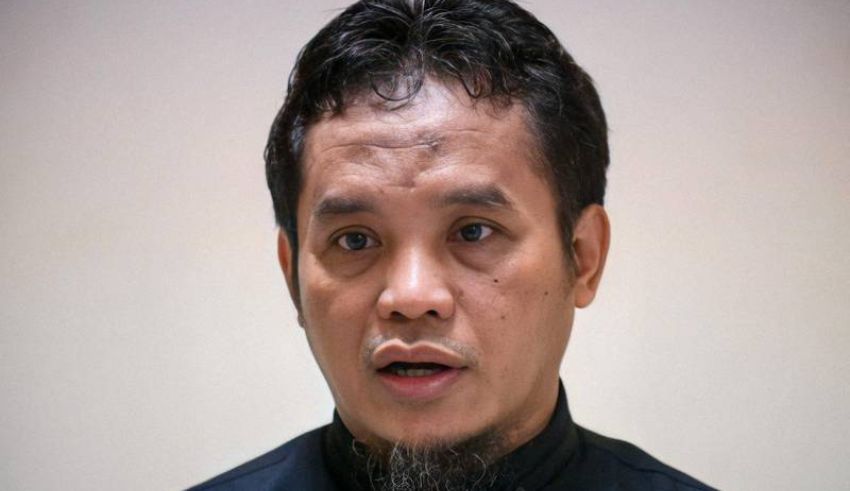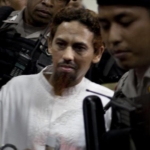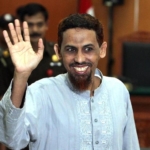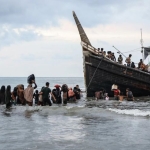
Ali Imron, also known as Ali Ghufron, is one of the convicted perpetrators of the 2002 Bali bombings, which killed 202 people and injured more than 200 others in Indonesia’s popular tourist island. The bombings, which targeted two nightclubs and the US consulate, were carried out by Jemaah Islamiyah (JI), a militant Islamist group linked to al-Qaeda, which aimed to establish an Islamic state in Southeast Asia.
Imron, who was the youngest brother of the two masterminds of the bombings, Mukhlas and Amrozi, was sentenced to life imprisonment in 2003, after he confessed to his role in the attacks and expressed remorse for his actions. He was the only one of the 33 convicted bombers who did not receive the death penalty, due to his cooperation with the authorities and his repentance.
Imron, who is now 50 years old, has since renounced violence and extremism, and has become a vocal advocate for peace and deradicalization. He has participated in various programs and initiatives to counter the ideology and influence of JI and other terrorist groups, and to prevent and rehabilitate other militants and extremists. He has also written books and articles, and given interviews and lectures, to share his experience and insights, and to warn others of the dangers and consequences of terrorism.
The request and the rationale of Imron
In January 2024, Imron submitted a letter to the Indonesian President Joko Widodo, requesting a pardon and a release from prison, on humanitarian and medical grounds. Imron said that he was suffering from various health problems, such as diabetes, hypertension, and kidney stones, and that he needed better treatment and care. He also said that he was tired and exhausted from his long incarceration, and that he wanted to spend his remaining years with his family and friends.
Imron also said that he had fulfilled his obligations and duties as a prisoner, and that he had shown his sincerity and commitment to reform and change.
Keep Reading
He said that he had cooperated with the authorities and the courts, and that he had helped the police and the intelligence agencies in their investigations and operations. He also said that he had contributed to the society and the nation, and that he had supported the government and the security forces in their efforts to combat terrorism and extremism.
Imron also said that he had a vision and a plan to continue his work and mission for peace and deradicalization, if he was granted a pardon and a release. He said that he wanted to establish and lead a foundation that would provide education and assistance to former and potential terrorists and extremists, and that would promote dialogue and cooperation among different religious and ethnic groups.
He also said that he wanted to travel and network with other peacemakers and activists, both in Indonesia and abroad, and that he wanted to learn and exchange best practices and experiences.
The reaction and the response of the government and the public
The request of Imron for a pardon and a release has sparked mixed and varied reactions and responses from the government and the public, both in Indonesia and abroad. Some of the reactions and responses include:
- The support and the sympathy, from those who believe that Imron deserves a pardon and a release, and that he has a positive and constructive role to play in the society and the world. They include some of the former and current officials and experts who have worked with Imron in the deradicalization programs and initiatives, and who have witnessed his transformation and contribution. They also include some of the victims and survivors of the Bali bombings, and their families and friends, who have forgiven Imron and who have reconciled with him.
- The opposition and the skepticism, from those who oppose and doubt Imron’s request for a pardon and a release, and who question and challenge his motives and intentions. They include some of the hardline and conservative groups and figures who still support and sympathize with JI and other terrorist groups, and who accuse Imron of being a traitor and a hypocrite. They also include some of the victims and survivors of the Bali bombings, and their families and friends, who have not forgiven Imron and who demand justice and accountability.
- The caution and the deliberation, from those who are cautious and careful about Imron’s request for a pardon and a release, and who seek and weigh the pros and cons of the decision. They include some of the government and the security officials and agencies who are responsible and involved in the process and the outcome of the pardon and the release, and who have to consider the legal, political, and security implications and ramifications. They also include some of the public and the media who are interested and concerned about the issue, and who have different and diverse views and opinions.




























